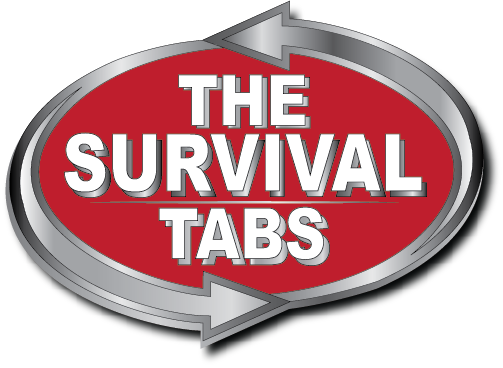How It Works

The quality of the food we eat is more important than the quantity. Of a foods’ theoretical calorie content, 30-60% is unused by the body and converts to unhealthy fat. The Survival Tabs are so completely and quickly digested they have a 99% absorption rate.
Within five minutes of consuming the tabs, 97% of the protein is available to repair and replace essential body tissues and fluids. These tabs were created for the Early Space Program using high-quality protein, carbohydrates and fat to provide the body with 100% of the daily essential vitamins and minerals required to maintain physical functions such as dexterity, stamina and coordination.
This product is not intended to treat, cure or prevent any disease. The information provided in this brochure is intended for your general knowledge only and is not a substitute for professional medical advice or treatment. Never disregard medical advice or delay in seeking it because of information you received from The SurvivalTabs.com or this brochure.
History of The Survival Tabs
The Survival Tabs has a long history. In the ’60s the Federal Government was searching for a food source that could be used in specialty situations. The objective was the find a product that would provide the best possible nutrition in the smallest possible volume. The resulting research was extremely involved and intense, and the product that evolved was used in the early space program. Eventually, a tablet was perfected and used widely as an emergency food. Professional athletes began using The Survival Tabs to maintain their ideal weight while sustaining maximum levels of activity and strength. A number of entertainers began using The Survival Tabs for the same reason. Dieters also discovered that they could lose weight very comfortably by replacing meals and snacks with The Survival Tabs.
The Main Purpose
The Survival Tabs are meant to keep you alive and going for months at a time. A person can survive 4-5 months by eating The Survival Tabs exclusively. One daily serving of 12 tablets contains 240 calories, which gives the body the basic daily nourishment required when the recommended calorie intake cannot be met. The Survival Tabs eliminate the need to forage for food in situations where you are lost, stranded, or trapped.
In an emergency situation, one 180-tablet bottle of chewable tabs supplies a person with 15 days worth of survival food based on the recommended consumption of 12 tablets per day. This can be stretched to a 30-day supply under extreme conditions. The Survival Tabs remain usable for 90 days once opened, before losing their efficacy. They have an unopened shelf life of 25 years. This makes them ideal to store in preparation for natural disasters.
Weight Loss
Because The Survival Tabs contain optimum nutrition with a minimum of calories, it is an ideal food for weight loss and weight maintenance. For weight loss, eat two regular meals each day and substitute your third meal with 3 to 6 Survival Tabs. If you prefer to eat just one meal a day, you can substitute the other two meals with 3 to 6 Survival Tabs per meal, or a few more as needed. The exact amount of The Survival Tabs eaten is an individual decision and must be monitored and adjusted by you. Remember to eat at least one balanced meal daily, of at least 600-800 calories in conjunction with The Survival Tabs plan.
Substitute all of your between-meal snacks with The Survival Tabs, drink 6 to 8 glasses of water each day and watch the pounds go away! The Survival tabs has no chemical appetite suppressants. And each of the tabs contains only 20 calories!
*Consult your physician before beginning any weight-loss or weight maintenance program. It is not uncommon during the first week of exclusively using The Survival Tabs an average person may lose as much as 5-8 lbs. This is mainly due to the emptying of digested food in the intestinal tract. After the first week, weight loss may level off to 0-2 lbs. per week. During this time your body uses stored fat for energy. This usually occurs if a person continues their normal daily activities, and would be considered normal weight loss if a person were on a diet.

-
 Thực Phẩm Sinh Tồn – Survival Tabs – Vị Sô-cô-la
Rated 5.00 out of 5$44.95
Thực Phẩm Sinh Tồn – Survival Tabs – Vị Sô-cô-la
Rated 5.00 out of 5$44.95
-
 Survival Tabs - 15-Day Food Supply - Vanilla Malt - Gluten Free and Non-GMO
Rated 4.67 out of 5$44.95
Survival Tabs - 15-Day Food Supply - Vanilla Malt - Gluten Free and Non-GMO
Rated 4.67 out of 5$44.95


